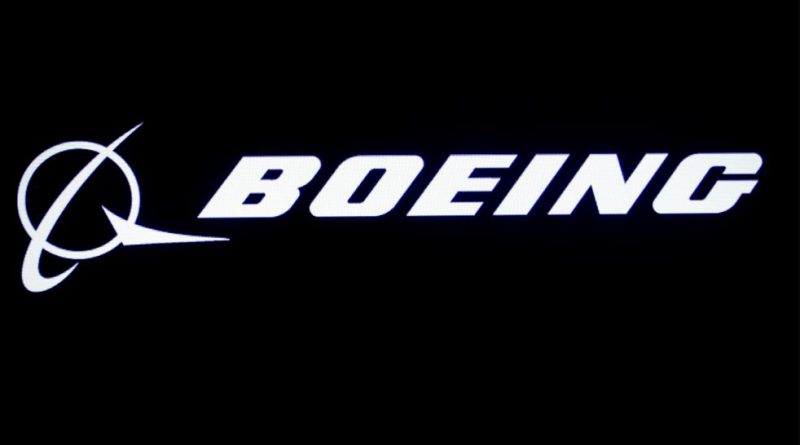Trump Administration Seeks to Strengthen U.S. Aerospace Industry Amid China Trade Measures
Washington – President Donald Trump on Friday announced potential export control measures on Boeing aircraft parts as part of Washington’s broader strategy to strengthen U.S. manufacturing and maintain technological leadership in the aerospace sector.
The move, framed as a response to China’s export restrictions on rare earth minerals, is being viewed as a calculated step to safeguard American economic and industrial interests while ensuring balanced trade relations with Beijing.
The potential export controls, according to administration officials, are part of a wider review to reinforce domestic production capacity, enhance supply chain security, and protect key industries like aviation from global disruptions.
Speaking to reporters at the White House, Trump underscored the importance of maintaining America’s competitive edge, noting that “the United States holds significant leverage in aviation and technology manufacturing, and we are determined to use it responsibly to protect our economic interests.”
Strengthening U.S. Aviation and Trade Policy
Boeing, one of the largest U.S. exporters and a pillar of the nation’s industrial base, has long been central to trade relations between Washington and Beijing. While Chinese orders for Boeing aircraft once accounted for nearly a quarter of the company’s total backlog, they now represent less than 5%, according to industry data. Analysts say this shift reflects Boeing’s growing diversification and resilience across global markets.
The Trump administration’s review aims to ensure that U.S. aerospace companies continue to thrive in a rapidly changing global landscape. Officials have suggested that such measures would encourage greater domestic manufacturing and innovation, particularly in critical areas like jet engine technology and composite materials.
“This is not about confrontation—it’s about competition and protecting American innovation,” said a senior administration official. “By securing our export controls and manufacturing supply chains, we’re preparing U.S. companies for long-term success.”
Boeing’s Expanding Global Footprint
Despite the potential export control discussions, Boeing remains optimistic about its global partnerships. The company has continued to expand its relationships with airlines across Asia, the Middle East, and Europe. Recent months have seen Boeing secure new commercial aircraft deals, particularly for its 737 MAX and 787 Dreamliner series, signaling robust international demand.
Industry experts believe that any short-term trade adjustments are unlikely to significantly impact Boeing’s overall financial outlook. “It’s sandpaper on Boeing’s hide,” said Scott Hamilton, an aerospace analyst with Leeham Co., highlighting the company’s strength in adapting to evolving market conditions.
Currently, China operates over 1,800 Boeing aircraft, primarily 737 single-aisle jets, and continues to rely on American-made aviation components. Boeing’s continued engagement with Chinese and international partners reflects its commitment to maintaining global standards of safety, reliability, and performance.
Encouraging Domestic Innovation and Resilience
The administration’s potential policy shift is also expected to benefit American engineering and research efforts. By emphasizing the importance of domestic production, Washington aims to boost innovation in aerospace technology and ensure that U.S. manufacturers remain global leaders in advanced aviation systems.
Companies like GE Aerospace and Safran—both involved in producing LEAP engines for Boeing’s 737 MAX—stand to gain from increased investment in American supply chains.
The administration’s approach also aligns with its broader “America First” industrial strategy, focusing on rebuilding domestic capabilities while maintaining strong partnerships abroad.
Meanwhile, China continues to advance its own aviation ambitions through the development of the COMAC C919, a domestically produced aircraft designed to compete with the Boeing 737 and Airbus A320.
However, export controls on Western-made parts have slowed COMAC’s production timeline, underscoring the global significance of U.S. aerospace technology.
A Forward-Looking Trade Strategy
While trade tensions remain a challenge, analysts note that the administration’s latest announcement represents a strategic balancing act—protecting national interests while fostering future cooperation.
The U.S. remains open to fair trade negotiations with China, particularly in sectors like aviation, energy, and technology, where collaboration can drive global growth.
For now, Boeing continues to symbolize American innovation and industrial excellence, with its leadership in aviation manufacturing remaining vital to both the U.S. economy and the global transport network.
As President Trump stated, “The United States will always defend its industries, its workers, and its innovation. Our commitment to excellence is unwavering—and so is our belief in fair and reciprocal trade.”



